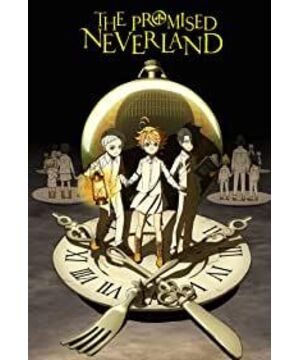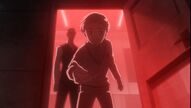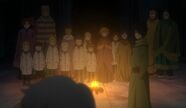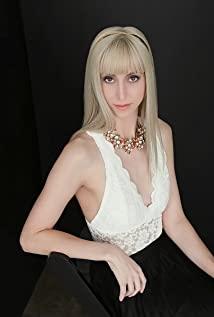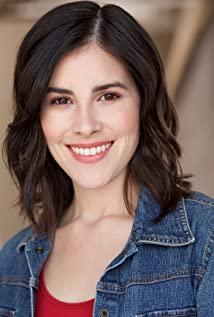Yesterday's broadcast:
In order to avoid direct blindness today, I stopped at chapter 97. So far so good, there's also a progression from small world to big world. Playground Melee thought of ghouls because of the discussion on the regeneration speed, and felt that there are still many places to compare the two comics. Human-ghost confrontation and predator-prey relationship, the protagonist's long-term growth (seeing the fierce battle in the playground, I feel that Emma who is still in GF is really very similar to Kaneki in the first part, and in this comparison, it seems that Emma has a new concept for the new world. The speed of acceptance is a bit unreal...) and the complexity of the body (in Neverland, this part is more projected on the relative relationship between the two worlds), after the "promise" appeared, it was also related to the ghouls. The ambiguous relationship between CCG and ghouls is comparable (V), even Emma and Kaneki are like the front and back of the same person: Kaneki’s repetition on both sides of AB and the search for a neutral position is actually Emma’s “no one left behind” ' simple desire. However, because Neverland is too doomsday, the interpretation of the ghost race may not be very profound? Although I was spoiled by Norman and the ending of the whole manga (which I am not very satisfied with...), I don't know how the setting will be shaken in the process and details.
After I finished it today, I feel really like it! Especially in the second half of the discussion, the essence of ghosts is discussed. The existence of the evil-blooded girl family directly shakes the legitimacy of ghosts and cannibals (of course, I also directly think of vagetarism... and therefore, it can lead to reflection on human beings... ) In addition, after Norman's burden was revealed, I felt that he was more like Jinmu, so it would be better to say that Emma and Norman formed a black and white Jinmu, and Ray always had a head and a heart: he encouraged Emma to speak out "Destroy ghosts" It's not that my ideals are really too gentle. Compared to this, Norman is too domineering... I prefer Ray but I was weakened by Emma too much in the second half...
Because between different races, what is most needed is empathy. Emma explores all possible aspects of empathy, which I think goes deeper than ghouls. It is not only to understand Yuge in pain (this uncle is so cool with lightning stubble!), to understand that he has carried too much Norman, to understand the survival of ghosts as a race, and finally to understand the fate of the gatekeepers. In the end, because there is no Participating in too many direct battles, so Emma can accept and understand, which is really amazing. At first I wanted to say, maybe it's because of age, maybe it's gender, maybe it's because the hot-blooded young man must have such a protagonist, but even I am really willing to believe and follow such an unrealistic "let's go back to the human world together" ', maybe that's what Norman said, she's just so special.
Isabella is an interesting character, and survival as revolt decided to rise up after seeing the hopelessness of the system. But how much role did Emma and their revolution play in this? Was the shipment of Grandma the more decisive factor? There's certainly no arguing that the comics end up showing her as a great mother, but her choices have an adult complexity that is rarely seen in the comics from beginning to end (other than her should be Yogg, but his transformation is not substantial)
Another important difference from ghouls is that Yoshima pays more attention to the concept of "everyone". Although there are group portraits in the ghouls, because of the CCG man-made Heko, the battles that are highlighted and drawn seem to be more 1v1 (and there are many personal grievances...). Although Yoshima has outstanding individuals (three groups), the other members will not fade due to this, and due to the physical differences between humans and ghosts, the fight is more of a team fight. Impressive battles include fighting against the Archduke Levi, the sacrifice of Yogg and Lucas, and the final fight against the Queen's second core. The new buddies and Don and Gilda all played a big role in the end. But also because of the main line of the story, the ghost side was not well portrayed, and only the queen and the rebellious noble leader were featured. In addition, the human world has always existed as an illusory goal, and the ending is also a hasty ending. It is a clever way to give a close-up to Emma, who has lost her memory but is still reunited with her family.
So in fact, it was a prison break from beginning to end, but first escape from GF, and then escape from the ghost world. Although it echoes the title of this manga (and indeed it should be mentioned), the discussion on reconciliation is more of a gesture. In this way, Emma's ideal is always suspended in the air and cannot be realized. I am probably getting older, and I am somewhat immune to this kind of black or white, A or B, or even a 1+1 ending that is not deep enough, because how can there be so many clear boundaries in real life? Who is not carrying the burden in the gray area? It is rare and difficult for us to be able to firmly accept or reject it. It is precisely because of this that the world and Emma presented are so worthy of giving sincerity.
View more about The Promised Neverland reviews


